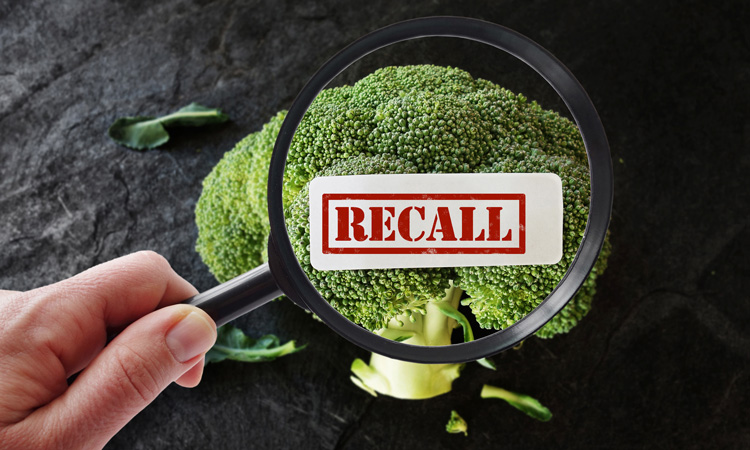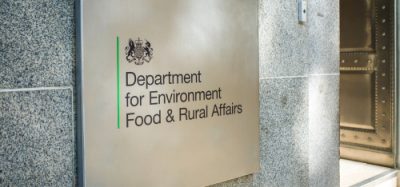An interview with the FSA: recalls and risk prevention
- Like
- Digg
- Del
- Tumblr
- VKontakte
- Buffer
- Love This
- Odnoklassniki
- Meneame
- Blogger
- Amazon
- Yahoo Mail
- Gmail
- AOL
- Newsvine
- HackerNews
- Evernote
- MySpace
- Mail.ru
- Viadeo
- Line
- Comments
- Yummly
- SMS
- Viber
- Telegram
- Subscribe
- Skype
- Facebook Messenger
- Kakao
- LiveJournal
- Yammer
- Edgar
- Fintel
- Mix
- Instapaper
- Copy Link
Posted: 3 February 2020 | Tina Potter | No comments yet
Tina Potter, Head of Incidents at the Food Standards Agency (FSA), tells New Food how food businesses in the UK should be complying to regulatory standards that not only protect the health of consumers, but can prevent cases from ever occurring.


The process of recalling food and beverage products is designed to protect consumers from potentially harmful health incidents and ensure that the entire supply chain of that product is appropriately notified about the cause of the recall. Food businesses in the UK must follow regulatory guidance set out by the Food Standards Agency (FSA). Here, New Food hears from Tina Potter, Head of Incidents at the FSA, about how, why and what these businesses should be doing.
Q: Has there been a rise in the frequency of recalls?
A: The number of incidents and alerts recorded in any given year can be affected by many factors. This includes new consumer trends and awareness, technological developments, legislative changes, the amount and nature of testing carried out, and even the weather.
The current volume of food recalled only represents a tiny proportion of the millions of food products sold in the UK every day. Increased levels of food recalls do not necessarily reflect a downturn in food safety controls or a decrease in the level of food safety. For example, it may be as a result of improvements in reporting. There is no evidence to suggest that the level of food safety in the UK has decreased.
Numbers of food and allergy alerts published from April 2017 to December 2019 are as below:
| 2017-18 | 2018-19 | 2019-20 (Q1-Q3) | |
| Allergy alert | 92 | 118 | 78 |
| Food alert | 48 | 73 | 49 |
Q: What does the FSA identify as the primary causes of these recalls? Are there any ‘trends’?
A: Our Incidents & Resilience Annual Report 2018/19 details the trends in recalls, as reported to us by food businesses.
Aside from allergens, the three most common issues associated with food safety alerts for 2018/19 were physical contamination (foreign bodies) and product contamination with either salmonella or listeria monocytogenes. Incidents involving gluten, milk and nuts make up the majority of allergen notifications that the FSA have received in 2018/19.
Detailed analysis of the root causes of 73 allergen incidents which occurred in 2018/19 indicates that errors made in technical, labelling control and production control are the major contributors.
Prepared dishes and snacks, cereals, bakery products and confectionery remain the most common food categories involved in allergen food incidents reflecting the more complex composition of these foods. This has resulted in greater opportunity for errors by food businesses during technical assessment, manufacturing and labelling.
Q: What is the process of a recall?
A: When a business becomes aware that the food they have produced, distributed, stored or sold may be unsafe and has reached consumers, and there are not any measures that would achieve a high level of health protection for consumers, the business must immediately initiate procedures to recall the food.
The business must also inform their competent authority – this will be the authority that the business is registered under (and where the business is an approved establishment, the authority that granted their approval).
Incidents involving gluten, milk and nuts make up the majority of allergen notifications that the FSA have received in 2018/19.”
Companies must inform each of their business customers who have received the food that it needs to be recalled. Those business customers must stop using and/or selling the food and carry out the recall. This occurs all the way through the supply chain to businesses selling direct to the consumer (ie, retailers). Businesses must, by law, be able to identify information on food purchased from suppliers and sold to business customers (one step back and one step forward). This requirement allows the recall to be communicated through the food supply chain.
Businesses must inform consumers about the recall. This will often be in the form of a Point of Sale Notice (POSN), which will be provided by the recalling business, for display where the products were sold. Businesses may also make use of other methods, such as emails (for example where consumers affected by the recall are easily identified through online sale records), notices on their websites, or social media posts.
When a consumer becomes aware of a food recall that affects them, they will be able to make an informed choice about what to do.”
For each food safety incident, including where the food is being recalled, the business will work closely with their competent authority. It is the competent authority’s responsibility to protect public health and verify business’ compliance with food law. This includes verifying that the business has removed affected food from sale and has informed consumers.
Where a food business is found not to have recalled unsafe food, competent authorities can use their powers to seize and detain the unsafe food, removing it from the food chain. In such cases, the FSA/Food Standards Scotland (FSS) will also inform consumers of the action taken.
There are different forms of enforcement actions which can be taken by the competent authorities, ranging from informal advice to prosecution. These actions are informed by each competent authority’s enforcement policy, which takes into account the risk and cause of the issue. The FSA and FSS work closely with competent authorities to make sure these issues are resolved appropriately.
Q: How can establishments avoid these cases from occurring?
A: We produce extensive guidance for food businesses to help them comply with requirements of food safety and hygiene legislation and to provide advice on good practice. Where businesses follow FSA guidance, it is likely to contribute to preventing incidents. Our guidance and advice also assists local authority officers in their enforcement role which includes provision of support and advice to businesses, eg, in relation to Hazard Analysis and Critical Control Point (HACCP) plans that will also contribute to incident prevention.
Where we become aware of food incidents which resulted in a recall, or which concern allergens, we encourage businesses to complete our root cause analysis (RCA) form and share their learnings. RCA allows food businesses to identify the initiating cause, in a causal chain, which led to a product recall and additionally, the stage at which intervention can reasonably be implemented to mitigate risk and prevent future recurrence.
This type of analysis is helping to inform FSA policy decisions, as well as providing direction for incident prevention activities by identifying ‘best practice’ to prevent recurrence.
Representatives from the Food Standards Agency will be speaking at Food Integrity 2020. To find out more about the event, including a full agenda and list of speakers, click here.


Food Standards Agency’s role:
The FSA and FSS have responsibility for public health protection and have a role in the following:
- Coordinating national and international food withdrawals and recalls
- Coordinating activities in the case of unsafe food being exported from the UK to other countries
- Liaising with the relevant enforcement authorities regarding food withdrawals and recalls
- Overseeing the risk assessment and risk management of food safety incidents, where appropriate (each case that is reported to us is handled on an individual basis, and in each case, we work closely with the competent authority)
- Providing information to the public about national, international and localised serious food recalls and, where appropriate, about food safety withdrawals
- Providing information to the public about food recalls is a key aspect of the FSA and FSS’s involvement in the process.
We publish allergy alerts and Product Recall Information Notices (PRINs) on our websites to reflect and promote the business’ own actions to make consumers aware of food on the market which may be unsafe. For allergy alerts, we ask businesses to inform the relevant allergy support organisations. Allergy alerts inform consumers when food is recalled specifically due to allergen issues. PRINs inform consumers when food is recalled because it may be unsafe due to any other reason.
We also communicate allergy alerts and PRINs on Facebook and Twitter, and consumers can sign up digitally to receive alert notifications through text messages or email. We also issue these alerts to local authorities for information purposes.
In 2019, FSA and FSS published a package to help food businesses carry out food safety withdrawals and recalls with greater ease and effectiveness. The package includes:
- Comprehensive guidance outlining roles and responsibilities, which explains what the law requires and how to comply. It also includes supporting tools such as editable allergy alert and food recall alert POSN that businesses can use
- An associated ‘Quick Reference Guide’
- A package to assist businesses conduct RCA. This includes an ‘Introduction to RCA’ e-learning course, a ‘best practice’ example of a completed RCA and a report form that businesses can use to share RCA learnings with enforcement authorities. RCA is a method that can be used to determine how and why the food incident occurred and to help identify actions to prevent future incidents.
About the author
Tina Potter, Head of Incidents at the Food Standards Agency (FSA), has worked in the world of incidents since 2017. She previously worked for the meat hygiene service and managed operational and veterinary staff. Potter led the operational input from the FSA into horsemeat in 2013, which provided her with valuable insight into the field of incident management, food safety and protecting consumers. She was seconded to work with the police during investigations for 18 months and then was deployed to lead another incident for a further eight months. This led her to become Head of Incidents in 2018. Potter holds diplomas in food hygiene, meat inspection, and HNC in business management.
Related topics
Food Fraud, Food Safety, Health & Nutrition, Outbreaks & product recalls, recalls, Regulation & Legislation, Supply chain, The consumer









